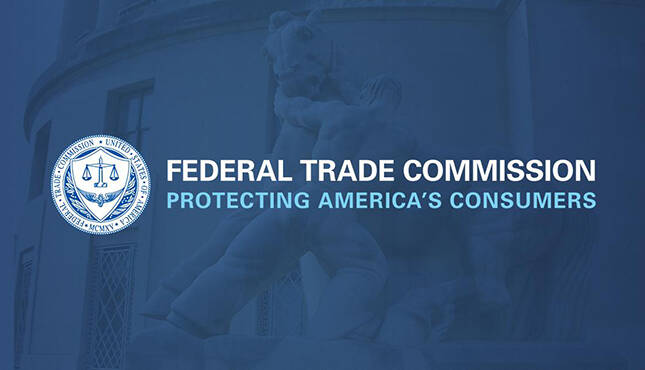
The Federal Trade Commission (FTC) has recently approved a new rule to ban non-compete agreements.
CNN is reporting that the FTC voted 3-2 in favor of the new rule that will prevent companies from making their employees sign non-compete clauses.
The new rule will come into effect 120 days after the date of publication, after which all existing non-compete agreements will become unenforceable, except for the “senior executives” who earn more than $151,164 annually and hold a “policy-making position” within the company. They will still be bound by their existing non-compete agreements.
It is important to note that independent contractors, such as the talents in WWE and AEW, will apparently be protected under the new rule.
The FTC’s rule classifies workers as,
“The final rule defines “worker” as “a natural person who works or who previously worked, whether paid or unpaid, without regard to the worker’s title or the worker’s status under any other State or Federal laws, including, but not limited to, whether the worker is an employee, independent contractor, extern, intern, volunteer, apprentice, or a sole proprietor who provides a service to a person.” The definition further states that the term “worker” includes a natural person who works for a franchisee or franchisor, but does not include a franchisee in the context of a franchisee-franchisor relationship.”
It should be noted that the recently imposed ban is likely to be contested in court. The US Chamber of Commerce has expressed its intention to initiate legal action against the FTC this week over the ban, arguing that the agency has exceeded its jurisdiction in this matter.
Currently, non-compete agreements apply to approximately 30 million people, which accounts for 18% of the US workforce.
BREAKING: The FTC just banned non-compete agreements.
The Federal Trade Commission has issued a final rule making it illegal for bosses to make workers sign noncompetes in any scenario, and voiding nearly all existing noncompetes.
This is a game changer for American workers. pic.twitter.com/9n1tJWpQl4
— More Perfect Union (@MorePerfectUS) April 23, 2024
Federal Trade Commission (FTC) Votes to Ban Non-Compete Agreements
In a groundbreaking move, the Federal Trade Commission (FTC) has approved a new rule that will ban non-compete agreements. The decision, which was voted in favor by a 3-2 majority, aims to protect workers’ rights and promote fair competition in the job market.
Non-compete agreements have long been a contentious issue, with critics arguing that they restrict employees’ mobility and hinder their ability to seek better job opportunities. These agreements typically prevent employees from working for a competitor or starting their own business in the same industry for a specified period of time after leaving their current job.
The new rule, set to take effect 120 days after its publication, will render all existing non-compete agreements unenforceable, except for senior executives who earn more than $151,164 annually and hold policy-making positions within their companies. This exemption is intended to safeguard companies’ legitimate interests in protecting trade secrets and confidential information.
One notable aspect of the new rule is its inclusion of independent contractors. Workers classified as independent contractors, such as professional wrestlers in organizations like WWE and AEW, will also be protected under the ban. This move recognizes the importance of ensuring fairness and equal opportunities for all workers, regardless of their employment status.
The FTC’s rule defines workers broadly, encompassing individuals who work or have worked without regard to their title or status under state or federal laws. This definition covers a wide range of workers, including employees, independent contractors, interns, volunteers, apprentices, and sole proprietors providing services to others.
However, it is important to note that the ban on non-compete agreements is likely to face legal challenges. The US Chamber of Commerce has expressed its intention to initiate legal action against the FTC, arguing that the agency has exceeded its jurisdiction in this matter. It remains to be seen how these legal battles will unfold and whether the ban will withstand scrutiny in court.
Currently, non-compete agreements affect approximately 30 million people, constituting 18% of the US workforce. The FTC’s decision is expected to have a significant impact on the job market, empowering workers to explore new opportunities and fostering healthy competition among businesses.
The ban on non-compete agreements is being hailed as a game-changer for American workers. It represents a step towards greater freedom and flexibility in employment, allowing individuals to pursue their career goals without unnecessary restrictions. As the new rule takes effect, it will be interesting to observe its implications for both employees and employers across various industries.
